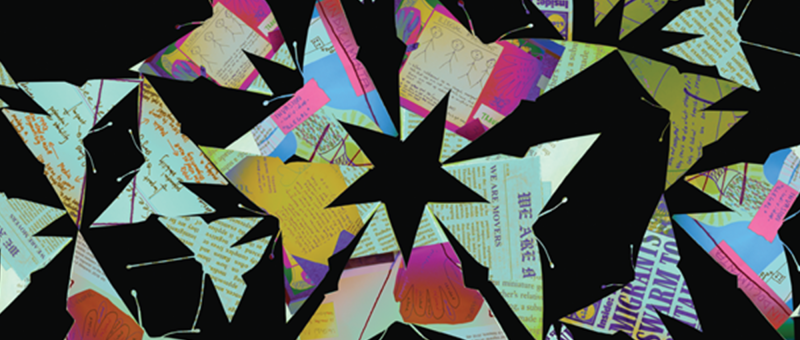On the 25th and 26th of October 2019, Refugee Hosts’ International Conference, ‘Without Exception: The Politics and Poetics of Local Responses to Displacement’ sold out to an international audience who joined us both in person and via live stream. Here we mark the conversations that took place and invite further conversations relating to ‘without exception’, a…
Category: Blog
Queer Russian asylum seekers in Germany: Worthy refugees and acceptable forms of harm?
Western states are often represented as safe-havens for refugees fleeing gender and sexuality-based persecution. However, all too often the credibility of the latter's testimony hinges on their adhering to specific stereotypes of 'worthy' refugees experiencing particular forms of harm. In this post, Prof. Richard Mole provides an extract from his chapter (pp 273-288) in the…
Refugee Hosts’ Research challenges perceptions at new IWM exhibition exploring 100 years of refugee experiences
Refugee Hosts' project is part of a major new exhibition at the Imperial War Museum, London from the 24th of September - 24th of May 2021. Refugees: Forced to Flee explores why people flee their homes and take certain items with them; how they make their journeys and find safety; and the challenges that can…
Religion and Social Justice for Refugees Webinar
As part of the Religion and Social Justice for Refugees Project, a partnership between the Refugee Hosts team and Yale University, this webinar focused on the implications of the findings of this interdisciplinary research for policy and practice. The webinar was held on the 15th of September 2020 from 3.00 pm, BST and a recording…
We are Movers: We are Towers of Strength
This ‘We are Movers: We are Towers of Strength' blog post is drawn from the chapter with the same title in the recently published Refuge in a Moving World Open Access volume edited by Refugee Hosts PI, Prof. Elena Fiddian-Qasmiyeh. The chapter (pp 139 - 144) incorporates the format of an 'image essay' and 'a linked…
From Home to Home
This poem is written by Prof. Ilan Kelman, inspired by the recently published Refuge in a Moving World Open Access volume edited by Refugee Hosts PI Prof. Elena Fiddian-Qasmiyeh. Ilan's chapter in the book, “Does climate change cause migration?” (pp. 123 - 133) examines if climate change has a direct and causative affect on forced migration, or…
Theatre and/as solidarity: Putting yourself in the shoes of a refugee through performance
In this post Marta Niccolai provides a narrated presentation of her contribution to the recently published Refuge in a Moving World Open Access volume edited by Refugee Hosts PI, Prof. Elena Fiddian-Qasmiyeh. Her chapter, 'Theatre and/as solidarity: Putting yourself in the shoes of a refugee through performance,” focuses on Teatro di Nascosto or Hidden Theatre,…
Care in a refugee camp: A case study of a humanitarian volunteer in Calais
In this presentation Prof. Sarah Crafter introduces the chapter, 'Care in a refugee camp: A case study of a humanitarian volunteer in Calais, written by Prof. Crafter and Dr. Rosen for the recently published Refuge in a Moving World Open Access volume edited by Refugee Hosts PI Prof. Elena Fiddian-Qasmiyeh. The chapter (pp. 228 -…
‘Behind each work there is a story of pain’: Nedhal’s art makes her happy
Nedhal uses art not just as a method of recovery from trauma and pain, but as a means of showing solidarity and welcome to new arrivals, a way of connecting with people who have experience of displacement and loss, and to bridge the gap between people from different cultures, countries and generations. These are all…
‘How Did it Feel to Ask those Questions?’ – An Email Exchange about Experiencing Research on Displacement.
In this post Hanna Schneider and her colleague Israa Sadder share an email exchange in which they discuss conducting research with Syrian refugees living in Jordan. The exchange describes the relationships developed both between researchers and intermediaries, and between researchers, intermediaries and their interlocutors. These research relationships raise multiple questions regarding how working as an…










You must be logged in to post a comment.